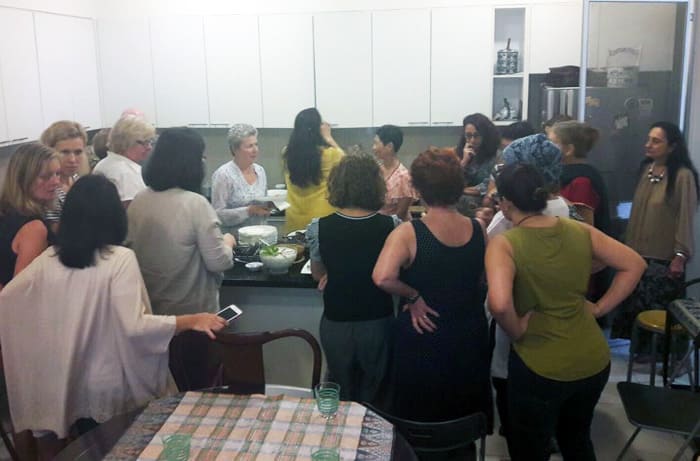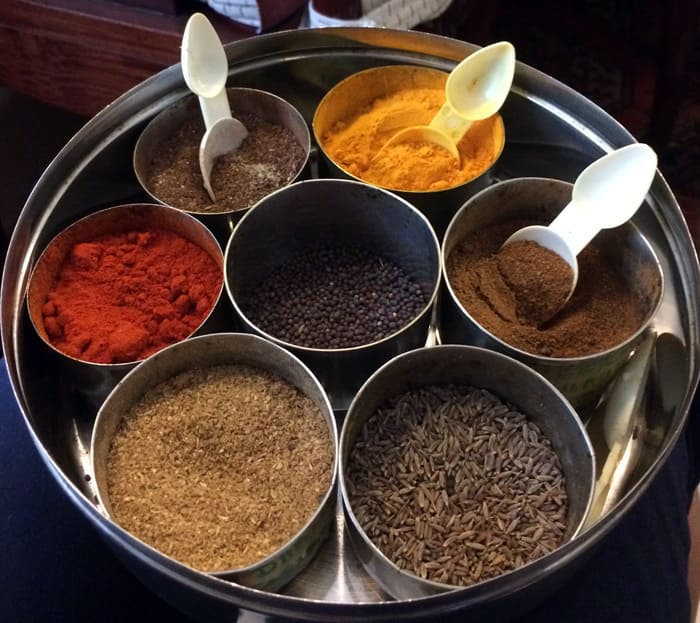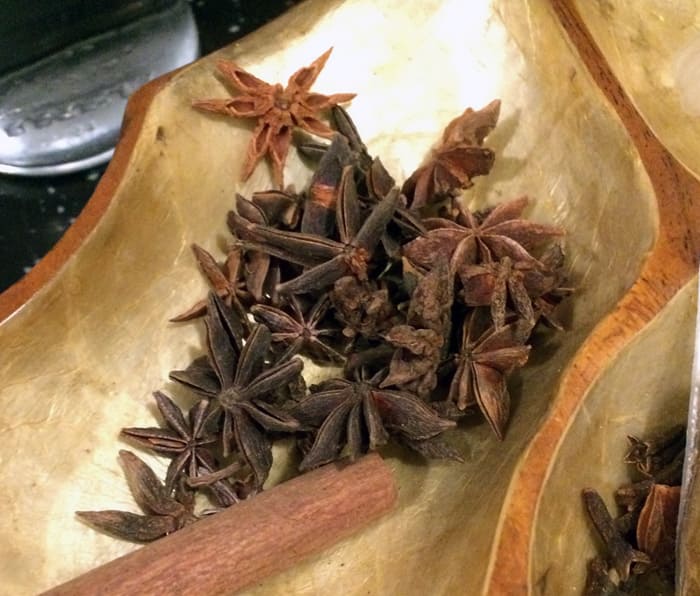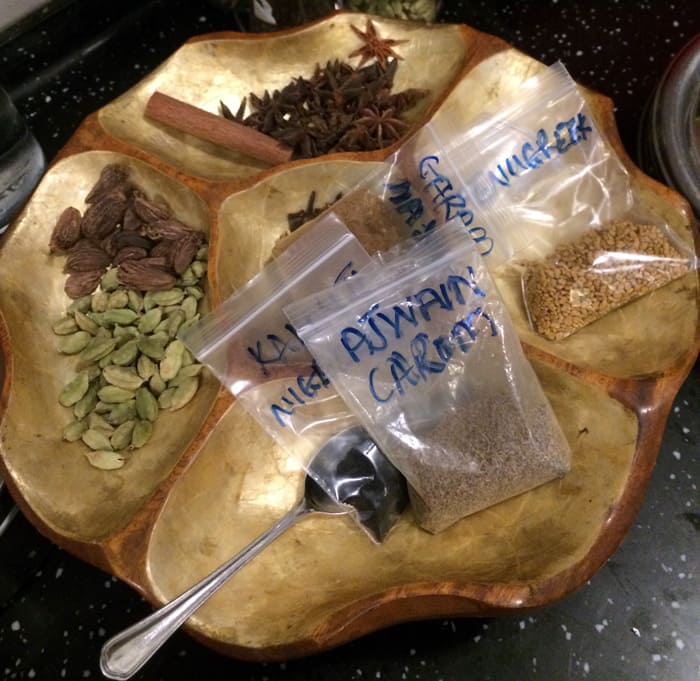
In January MCG Explorers' visited Manju Saigal’s home, where she taught us about Hindu traditions and Indian cooking. In Hindu tradition having guests in your house is considered an honor and all guests are to be treated as if they were gods. As soon as we stepped inside Manju’s doors we felt more than welcome as she made us feel at home.
Manju had made room for all 21 of us in her kitchen. She told us about how the kitchen is the main room in an Indian home; the kitchen is considered holy and purity is extremely important. In the old days families could even have separate kitchens for cooking vegetarian and non-vegetarian food. Now most just use separate cooking utilities.
Manju is a fascinating woman, with lots of stories and knowledge which she more than willingly shares. She talks about how it used to be in the old days, diversities between the north and south of India and between the west and east traditions. She shares stories from her personal life, but also tells us about how modern generations try to mix old traditions with new ones. It’s easy to tell that she likes having us there, teaching us and letting us, for a brief moment, be a part of Indian traditions, and all the time with a smile on her face.
In a traditional Indian home the mother always prepares and cooks the meals. She is also the one serving the food, no one is supposed to serve themselves. Before she serves her family and guests, she must clean herself up and sprinkle holy water around the kitchen and on the food. It’s a thorough process where the goal is to reach purity and grace. Manju tells us that the person cooking can’t even taste the food herself before she has served someone else. If she does, the grace of that meal will be ruined.
Another important thing around the process of cooking Indian food, is the making and transferring of energy. As they cook they must constantly stir the pot to make and transfer energy into the food. They would also light candles in the kitchen, to help make even more energy. According to Hindu religion everything living is equally important. Before they eat they will take off some food from their plates and make offerings to the gods, to the dog and sometimes to the insects. The offerings are also a way of getting grace.

Many of us know that an Indian dish contains a lot of different spices. And we might think of all these great spices as spices coming from India. Manju tells us that spices have been an important ingredient in cooking for thousand of years throughout east Asia. Many of them now used daily in Indian cuisine come from other countries and areas. Star anise for instance, comes from China and the best cinnamon comes from Indonesia. Through traveling and trading, different spices have found their way to India and become an important part of their food traditions.
Manju has tremendous knowledge of how to use the spices. She first learnt how to cook at the age of eight by her grandfather and later on her mother.

In an Indian dish it is usual to have between eight to ten different spices to make the dish unique, and there are many reasons for using all these spices. Some give you good health, others a nice flavour and some are simply used to hide the taste of a sour yogurt. Also by using one spice with various preparations, you get different flavours. She tells us how we can mix a spice into a cold fluid or a hot one, or we can grind it before or after we fry it.
Manju’s spice collection is amazing. It’s colourful and smells fantastic. She shows us one of her spice boxes that was given to her by her mother in law. It has a glass lid so she can see what different spices are in the box. She passes it around so we all can smell these fantastic spices. In addition to all the spices she buys in Little India, she also makes batches of mixed spices based on her favourite flavours. I don’t exaggerate when I say she has thirty different spices in her collection.

After being in Manju’s kitchen seeing all these fantastic coloured spices, smelling them and tasting some of them, I suddenly realise that I really need to spice up my kitchen cupboard. There is simply so many great spices out there waiting to be tasted. It’s really inspiring to listen to her. There’s something about the way she talks passionately about spices and cooking which makes you want to cook.
The few hours spent at Manju’s home went by too fast. We rounded up the session with a fantastic meal. She let us taste different Indian dishes that must have taken her all morning to prepare. Even though Manju said she had had some help in the kitchen that morning, we were impressed with her level of engagement and energy as she kept her talk interesting for one and a half hours. So maybe there’s something to it. Maybe Manju’s fantastic energy comes from the thorough process of preparing Indian food. At least I think all of us felt the energy and the grace in her kitchen that day.
Written by Torild-Elin Dalland
Pictures by Torild-Elin Dalland and Desiree den Ouden
